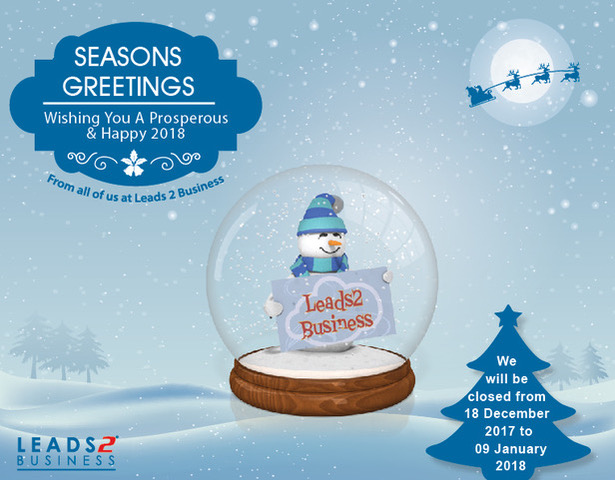
About Eldary Carpenter
I have been with Leads 2 Business for 5 years and absolutely love working for such a dynamic company. I started off as a Content Researcher in the Tenders Department before being promoted to Customer Relations.
General updates and news from the Construction Industry in Southern Africa

I have been with Leads 2 Business for 5 years and absolutely love working for such a dynamic company. I started off as a Content Researcher in the Tenders Department before being promoted to Customer Relations.

If you have missed any of our blog posts this year, here is a monthly review of some of the best blog posts from 2017, depicted from your traffic volume:

The booming growth of “Commercial Construction & Renovation” happening in South Africa.
Written By: Sasha Anderson
Publication date: 30 January 2017
Page Views: 82
Unique Page Views: 35
Average Time spent on the blog: 38 seconds
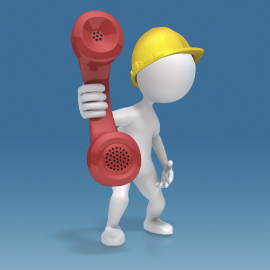
Enhance your fishing abilities to entice the big fish businesses through “Mastering the art of cold calling, tips for successful B2B Sales”
Written by: Karen Garner-Savory
Publication date: 09 February 2017
Page Views: 256
Unique Page Views: 111
Average Time spent on the blog: 30 seconds

Providing a creative remedy for tedious daily tasks with “Innovations In Smart Home Technology”
Written by: Marlaine Andersen
Publication date: 09 March 2017
Page Views: 119
Unique Page Views: 58
Average Time spent on the blog: 52 seconds
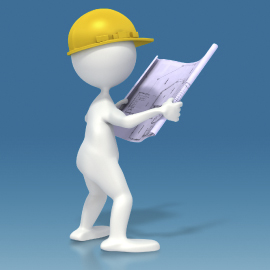
Racking your brain on the universal human need for shelter. “What is the importance of appointing an architect?”
Written by: Claire Donaldson
Publication date: 13 April 2017
Page Views: 124
Unique Page Views: 48
Average Time spent on the blog: 35 seconds

The never-ending roadworks that we find ourselves in “Potholes and Pitfalls in civil engineering contracts”
Written by: Bianca Warwick
Publication date: 11 May 2017
Page Views: 108
Unique Page Views: 67
Average Time spent on the blog: 03 Minutes and 04 Seconds

A quirky and yet vital list of “10 (or 11) tips for recruiting great Project Managers”
Written by: Michelle Hosford
Publication date: 15 June 2017
Page Views: 110
Unique Page Views: 50
Average Time spent on the blog: 02 Minutes and 51 Seconds

Finding a favourable balance in room temperature to get the ‘ka-ching’ light bulb. “Why air conditioning can increase productivity”
Written by: Jackie Van Zyl
Publication date: 13 July 2017
Page Views: 273
Unique Page Views: 112
Average Time spent on the blog: 01 Minute and 147 Seconds

Quenching the thirst with tools pertaining to water preservation with “Waste Water Management”
Written by: Angelique De Freitas
Publication date: 24 August 2017
Page Views: 264
Unique Page Views: 114
Average Time spent on the blog: 01 Minute and 53 Seconds

Dealing with the complexities of preserving the environment for our future generations through “Sustainable construction with 3d Modelling”
Written by: Tamika Mays
Publication date: 14 September 2017
Page Views: 198
Unique Page Views: 83
Average Time spent on the blog: 32 Seconds

Knocking down barriers without leaving a mess and extra work. Here is a guide on “How to demolish a wall the right way”
Written by: Julia Smit
Publication date: 12 October 2017
Page Views: 170
Unique Page Views: 75
Average Time spent on the blog: 29 Seconds
We believe that each and every one of our informative blog posts making the above list and being accidentally left out, have allowed you to walk with an insurmountable amount of knowledge, filling out the gaps and providing answers to the questions you may have been too shy to ask.
May the forces be with you.
I'm a Software Developer at Leads 2 Business since 02 June 2014.
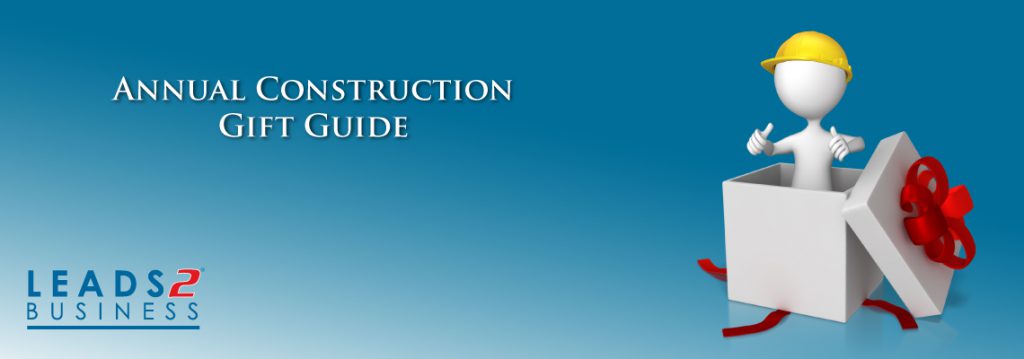
Corporate gifting to clients is one of the best marketing strategies that a company can use to build brand awareness and build close business relationships. It cultivates and affirms business relationships promoting feelings of goodwill between buyers and supplier.
Corporate Gifting is no longer restricted to the festive season, in a corporate world it is standard to introduce endowments to each other to build the business. Gifting can be used in many applications in business, for any occasion or any person – gifting reinforces the obligation of business to its customers.
Corporate gifting is used to stay noticed by clients and target consumers. The resources spent on these gifts are refunded back in terms of future business or higher sales of your product.
Gifting helps build your company brand, it helps build brand awareness as branding is all about making associations. Corporate gifts allow personalization – to have a successful branding campaign, your brand must be personal enough for consumers to identify and build a relationship with. By matching corporate gifts to the type of company personality that requires promoting, you will be able to hit the right chord with the consumers.
Corporate gifts maintain the interaction between company and consumers. Usually, after a marketing campaign, consumers will only be able to associate and interact with the company through its advertising message, which is intangible. But with corporate gifts, they will be able to touch and feel the representation of a company. This will leave your marketing message in their minds resulting in a better marketing campaign. Using corporate gifts is a good way to start building brand awareness among your customers. Many people think that by using corporate gifts as a marketing tool a huge budget is needed. However, I must say this is not true. With the right budget and campaign, you will be able to fulfil your marketing mission and create brand awareness for your company.
 |
 |
Corporate gifting is a great opportunity to show employees, management at your company and your clients that you appreciate them and promote one’s business brand in a cost-effective way. There are so many events that corporate gifts can be used for … Birthdays, Christmas, Women’s Day, Bosses Day, Secretary’s Day, Valentine’s Day, Mandela Day, Weddings, Award ceremonies, Retirement recognitions …. just a few to mention. This is a great opportunity to show your employees and your clients that they are really appreciated.
Promotional gifts are articles of merchandise that are branded with a logo or a slogan and used in the marketing and communication process – they are given away to promote a company.
Your budget should be fixed before-hand before you start factoring in how many recipients there will be, and what the occasion is.
Increases Brand Awareness
Provides appropriate Information
Increases customer traffic
Build sales and profits
Promotions will also help your company to introduce products easily into an ever so competitive market.
For enquiries regarding Corporate gifting, please contact michele@infinitycg.co.za
“Branded Corporate Gifts are lasting favourites”
Infinity Gifts Pty Ltd is a woman-owned business dedicated and focusing on delivering a superb service to you. My aim is to give you peace of mind and delight you. I can supply you with branding clothing, branded stationery, exclusive corporate pens, USB devices, first aid kit and much more.
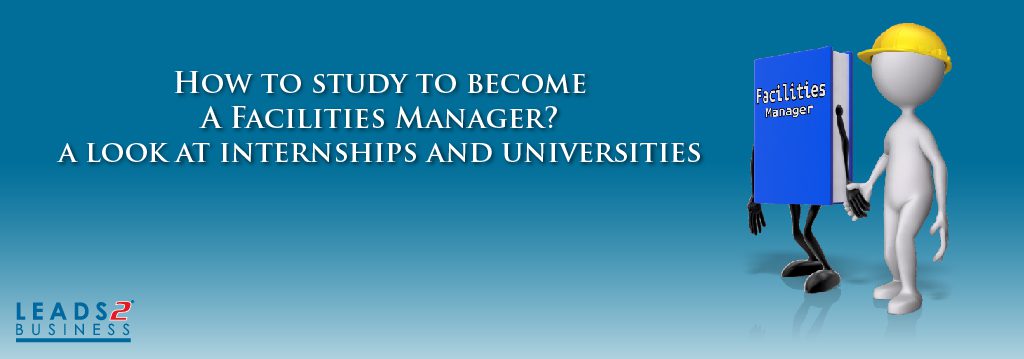
If you are looking to study to become a Facilities Manager, then I imagine you already know what might be involved. If not, please see below:
A facilities manager is the ultimate organiser, making sure that a workplace meets the needs of employees by managing all of the required services.
A Facilities Manager will be responsible for the management of services and processes that support the core business of an organisation and ensures that an organisation has the most suitable working environment for its employees and their activities.
This is a diverse field with a range of responsibilities, which are dependent on the structure and size of the organisation.
Facilities managers are involved in both strategic planning and day-to-day operations, particularly in relation to buildings and premises. Likely areas of responsibility include:
• building and grounds maintenance;
• cleaning;
• catering and vending;
• health and safety;
• procurement and contract management;
• security;
• space management;
• utilities and communications infrastructure.
The duties will probably vary depending on the nature of the organisation, but will generally focus on using best business practice to improve efficiency, by reducing operating costs while increasing productivity. A facilities manager can be employed in all sectors and industries and the diversity of the work is reflected in the range of job titles, for example, operations, estates, technical services, asset or property manager.
I’m sure the end result when deciding to study to become a Facilities Manager, is to be employed as such and have some idea of the competitiveness of the salary. Obviously, this would depend on your experience and the organisation you end up working for. According to Payscale Human Capital: “Facilities Manager Salary (South Africa): A Facilities Manager earns an average salary of R357,994 per year. Pay for this job rises steadily for more experienced workers, but goes down significantly for the few employees with more than 20 years’ experience. Most people with this job move on to other positions after 20 years in this career.” Let me reiterate, this a statistical average that takes all manner of different variables into account.
The next question is, are there opportunities for Facilities Managers out there? When doing my research, I found any number of vacancies advertised on any number of advertising sites. The job descriptions varied from company to company, as would be expected. Duties ranged from budgeting and routine site inspections to managing staff and getting your hands dirty, with handyman skills and qualifications. The remuneration offered ranged from R16,000.00 a month to R30 000.00; often dependent on qualifications, experience and the extent of the duties required.
It’s at this time of the year, that I see a lot more Learnerships and Bursaries being advertised in the media. However, when looking specifically for “Facilities Management”, I can’t say any jumped out at me. Due to the diverse and varied nature of the job, I can’t imagine it’s as clear-cut as some professions. Based on the variety of formal qualifications required/requested and the heavy lean on actual experience; Facilities Management definitely requires adaptability and a
diverse skill set.
I did find courses for Facilities Management offered by a variety of educational entities, namely:
The University of Cape Town (UCT) offers a Short Course in Facilities Management, through Getsmarter
Enterprises University of Pretoria (Pty) Ltd offers a Short Course in Facilities Management
CEA Career Excel Academy offers a Facilities Management Programme (FMP), a course held over three days
The Academy for Facilities Management (A4FM) is a specialist higher education institution that specialises in facilities management.
It goes without saying that when you decide to study, you ensure that you are studying with a reputable and qualified organisation.
The South African Facilities Management Association (SAFMA) recognises the need for training within the industry and offers endorsements for reputable training providers. Please see http://www.safma.co.za/Training
Facilities Management is as diverse and varied as the organisations that require it. And with the right qualification and experience, you can find the right fit.
Sources:
https://www.prospects.ac.uk/job-profiles/facilities-manager
http://www.payscale.com/research/ZA/Job=Facilities_Manager/Salary
https://en.wikipedia.org/wiki/Facility_management
http://www.safma.co.za/
I started working at Leads 2 Business in February 2005, and have served as Head of Department of Daily Tenders from 2007 until the present. I oversee both the Daily Tenders South Africa and Africa Departments.
Social Media adventurer exploring new frontiers and learning how to survive. Tongue in cheek and mischief are the order of any good day topped with a sprinkling of laughter.
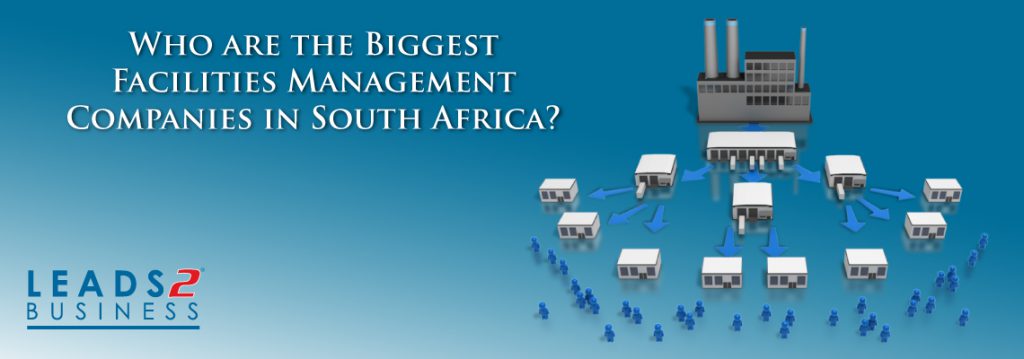
Before we establish who the big facilities management companies are, Let’s recap of what facilities management is.
• All services required for the management of buildings and real estate to maintain and increase their
value.
• The means of providing maintenance support, project management and user management during the
building life cycle.
• The integration of multi-disciplinary activities within the building environment and the management of
their impact on people and the workplace.
What is the role of a Facilities Manager you ask, their number one priority is keeping people alive and safe. They operate on two levels:

1. Strategically-tactically: helping clients, customers and end-users understand the potential impact of their
decisions on the provision of space, services, cost and business risk
2. Operationally: ensuring corporate and cost-effective environment for the occupants to function
Let’s look at the BIG Facilities management companies within South Africa. When I was asked to write this Blog, I could only think of two and I thought they are the biggest and most popular, little did I know.
Sanitech
Who is Sanitech and What do they do you ask?
Sanitech was founded in the early 1980’s. They are the first portable toilet hire company in South Africa to supply sanitation facilities to areas where no sanitation infrastructure exists
Sanitech’s Toilet Hire division has over 20 branches nationwide and 2 branches in Africa (Zambia and Botswana) with the largest rental fleet in the country with over 25,000 units and 200 vehicles.
They Specialise in :
◦ Integrated Hygiene: this is a seamless solution catering for large industrial and mining companies up to small corporate offices
◦ Daily Cleaning: this their core business.
◦ Deep Cleaning: heavy duty cleaning utilising specialised chemicals that focus directly on removing built-up body fats, grease and grime.
◦ Specialised Cleaning: Sanitech has expanded their unique offering of Integrated Services with Specialised Cleaning Services.
◦ Washroom Products: supplies a comprehensive range of effective, durable and reliable hygiene products.
◦ Pest Control: removing a wide range of undesirable insects, rodents and other pests on a regular basis necessary to maintain good hygiene levels in the workplace.
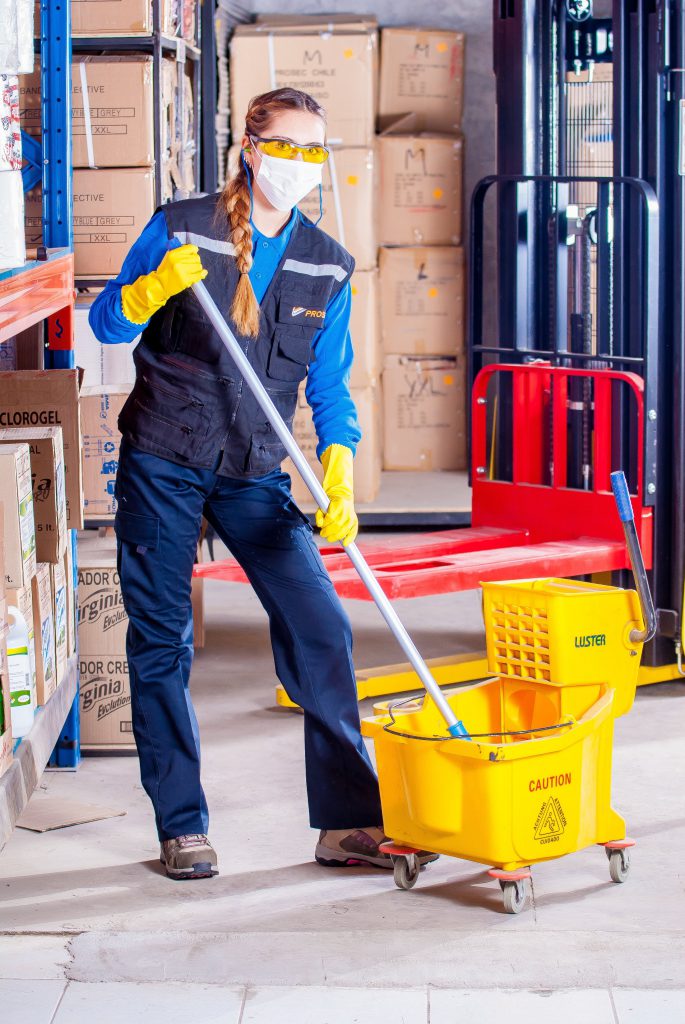
Broll
Who is broll and what do they do – You probably thinking that Broll is a Property Management Company… well guess again,
Broll Facilities Management is dedicated to the coordination of and functionality of space thus letting you focus on your core business. In addition to Broll being property managers, they are also one of the many few Facilities management companies responsible for day-to-day operation and care of prestigious educational institutions and world-class sports stadia.
Broll offers a wide variety of services for companies in terms of Facilities management below are some examples:
Within the corporate environment
• Turnkey outsourced management
• Space planning and asset tracking
• Fleet management and courier services
• Risk management of the business-critical computer centre
• Hard and soft-service provider management
Within Schools
• Maintenance of boarding facilities and staff housing- Project management of expansions
• Coordination of all school events in association with the Occupational & Safety Act
• High-volume usage of all facilities
• Maintenance of all sporting facilities
• Conservation programmes for the upkeep of grounds and other key facilities
• Management coordinated around peak times
• Water-treatment plants and swimming pools
Within Sport facilities
• Action plans for event operations and emergency procedures
• Management and coordination of corporate hospitality
• Working with international sporting bodies regarding legislative requirements
• Working with the host broadcaster for audio and visual feeds
• Working with various security-service providers, particularly for international teams
Bidvest Facilities management
Bidvest Facilities management? Who are they? And Do they really do Facilities management you ask….. they will YES!!!!
Bidvest Facilities Management is one of the largest Facilities Management solutions companies in Southern Africa. They have a contact centre which operates 24/7/365. Bidvest offers End-End Services. Bidvest’ Facilities management solutions include Facilities Solutions, Engineering Maintenance, Property Management, and Professional Services.
Their Focused solutions include the following :
•Mobile Generators
24-hour servicing, maintenance, and refuelling support, even in remote areas
•Utilities Management
outsourced administration service with end-to-end financial management of large volume utilities billing queries.
•Mobile Maintenance
Basic electrical, plumbing, mechanical, and general building maintenance on a scheduled contract or a planned project basis by multi-skilled staff
•Training Academy
State-of-the-art technical training centre, MERSETA accredited, with various training initiatives offered to clients’ facilities staff as well as the wider public
•Telecommunications Services
Maintenance and servicing of telecommunications facilities including data centres, network buildings, telecommunications, masts and towers, and all network supporting infrastructure.
•Structure Integrity Inspections
Integrity Inspection services of structures that comply to statutory requirements, such as billboards, masts
Eris Property group just like Broll Property also offer the service of Facilities management and not just Property management.
Listed below are some of the services Eris Facilities Management Division offers:
• Technical services (Building structure interior and exterior)
• Business support services
• Soft services
They commit to excellence and allow them great control over the quality of service delivery, flexibility and the ability to maximize efficiencies to reduce costs
FFM
Ok, Ok before you ask who, what, where and how…is FFM??
FFM stands for Full Facilities Management. They are a self-funded Black-Owned & Managed Facilities Management Company. They provide Turnkey Facilities Management Solutions. They’re founded in a rural KwaZulu-Natal. They also provide a full and comprehensive Asset, Facilities and Property Management Services, ranging from Planning to Implementation.
Their services are aimed at the Government departments, Quasi-Government Institutions, Regulatory Bodies, Corporate and Private clients.
Their services include:
1. Building Management (Design, Adjacencies, Tenant Installations, Office Designs, Drywall partitioning, Glazing and Frosting, Painting)
3. Furniture Design, Supply and Rental
4. Security and Access Control Equipment specification, Configuration, Supply and Support
5. Project Management
6. Building Fabric Maintenance
7. Space Management
8. Office Automation Rental Services specification, Configuration, Supply & Support
9. Managing Building Services
The below diagram shows how FFM is different from all other Facility management companies, or as they would say, this makes FFM unique
Servest
Servest seems to be one of the well-known facilities management companies that I know of.. think about it, the hand dryer, the sanitary bin in ladies bathroom is all Servest.
Servest is one of South Africa’s Leading Integrated Facilities Management
Company. They are a multidisciplinary business positioned to coordinate all of your facilities-related services.
Servest offers a variety of different services:
Pest control
They provide effective solutions in the commercial and industrial markets.
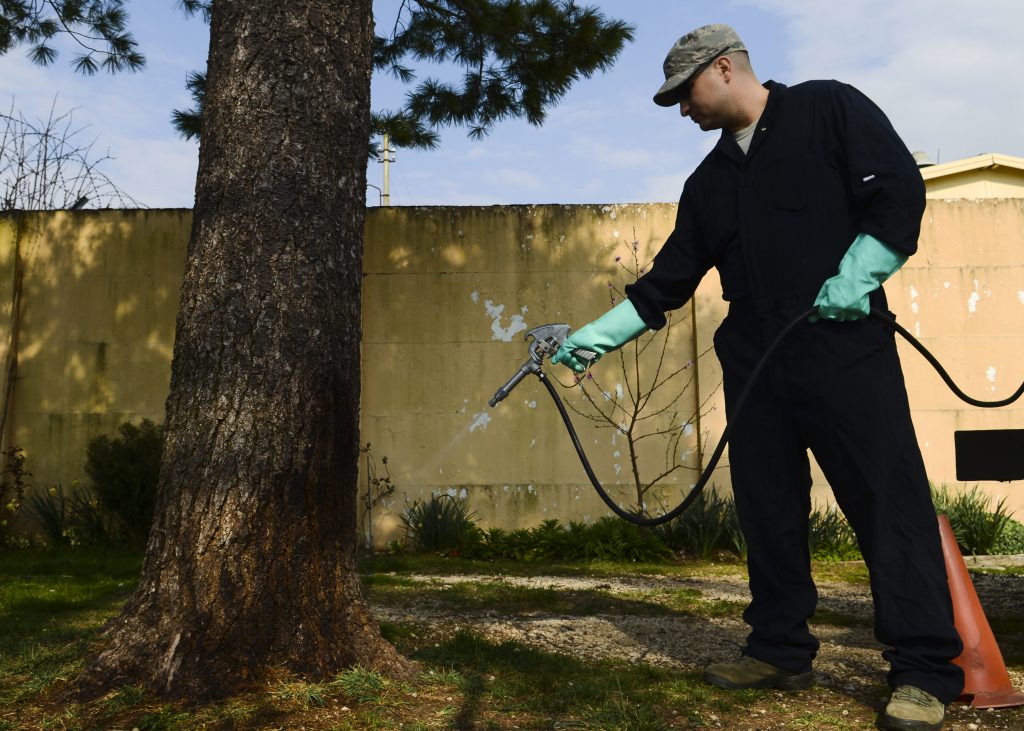 |
 |
Servest treat and control all forms of structural pests including:
• Cockroaches
• Rodents
• Flies
• Ants
• Fleas
• Bedbugs
• Silverfish
• Mosquitoes
• Wasps
• Midges/fruit flies
• Termites
Other specialised services for pest control include:
• Rodent monitoring and control (avoiding infestation, damage and health risks)
• Insect monitoring and control
• Bed bug control (using unique, innovative and proven techniques)
• Insect identification services
• Independent pest control technical audits
• Compliance with South African legislation and international quality standards
Hygiene
Hygiene by Servest is found mainly in the Washroom – at malls, office parks.
The services provided include hospitals, some schools.
Chemical Deep Clean
The Ablutions are a big hot spot for bacteria build up and viruses. This is and probably will be the most unhygienic environment. They put us, our colleagues, and visitors at risk with this.
This explains why this is one of servest’s main focus.
Below are some of the services they offer under Hygeine:
• Urinal traps
• Long urinal drains and gulleys
• Underneath toilet rims
• Showers walls and drains
• Basin overflows, drains and piping
All equipment is used according to HACCP standards, this is to ensure that there is no cross between high-risk units (such as Toilets & urinals) and low risk unite (such as basins and showers)
Kitchen Solutions
Servest also offer specialised deep cleaning services for your kitchen, to simplify the process for effective results. Specialised deep cleaning services for your kitchen, to simplify the process for effective results.
These services include:
• The cleaning of extractor fans (this is what attracts a grease build-up on the canopies, filters and extractors that can become a serious fire hazard)
• Cleaning of stove areas (this is especially important as grease on floors means slippery conditions that can result in injuries)
• Cleaning of deep fryers and surrounding work surfaces (this is where grease and dirt build up. This is an ideal breeding ground for carrying diseases.
• Cleaning of wall plugs (areas, where dirt build-up, promotes increased cockroach activity)
Office Plants
Office plants also form part of the servest Facilities Management.
Not only will your office be clean, but it will also look beautiful.
 |
|
Services offered:
• Beautifully designed natural and artificial plants
• Eye-catching designs and impressive indoor displays
• Scheduling service plans for all plants
• Specialised designs, installation and maintenance of atrium and special events
 Water
Water
Servest also offers water purification services. There are two types of systems they offer:
Manually Filled Systems:
The filtration of on-site tap water.
Inline Systems:
The filtration connected directly to a water supply where tap water is automatically filtered and available for use.
Below are different types of water purification they offer.
• Desktop water dispensers and purifiers
• Free standing water dispensers and purifiers
• Water fountains and industrial water fountains
• Mineral pots (portable desktop water purifiers)
• Reverse osmosis systems and under counter filtration systems
• Water treatment systems
• Replacement water filters
• They install it and you enjoy it
Servest also offer bottled water – (500ml) in cases of 24 bottles per case, or 18.9lt PC bottles.
A Quote on their website: “Quality water you can trust” – Servest
Compass Group
This is a first for me ..I have never heard of Compass Group – Probably been living under a rock…. EEEEK… So who is Compass and what do they do…
Compass group is owned 75% by Compass Group PLC and 25% by Thebe Investment Corporation.
Compass Group PLC is one of the largest food services and facilities company in the world, They operate in over 50 countries and providing their services to over 30 000 clients locations.
Thebe Investment Corporation is the oldest most established BEE organisation in South Africa.
Supercare is part of Compass group and deals with the facilities management.
HYGIENE SERVICES
They provide a range of specialised services, including maintenance and regular refilling of products so that hygiene facilities and operations are hassle-free and effective.
• Wall Mounted Soap Dispensers
• Toilet Hygiene Services
• Air Freshener Dispensers
• Hand Dryers
• Dust and Industrial Floor Mats
SPECIALISED CLEANING
This is a complicated and difficult cleaning processes such as deep cleaning or floor cleaning. There is nothing they cannot clean – from upholstery to ceilings to from escalators and high windows. There are no impossible jobs or hard to reach spaces.
Something to think about:
Does a clean office impact productivity?
Sources:
http://www.safma.co.za/About/About
http://www.safma.co.za/Business
http://compass-group.co.za/3-reasons-why-a-clean-office-is-important/
www.fullfacilitiesmanagement.co.za
https://www.servest.co.za/services/water/
Image sources:
I started working at Leads 2 Business in August 2014 in the Telesales Department as an Accounts Co-coordinator. I am extremely privileged to be apart of a dynamic Sales team and an empowering Company. I am a very out-going person with many characteristics, and love to help when a client needs any assistance.
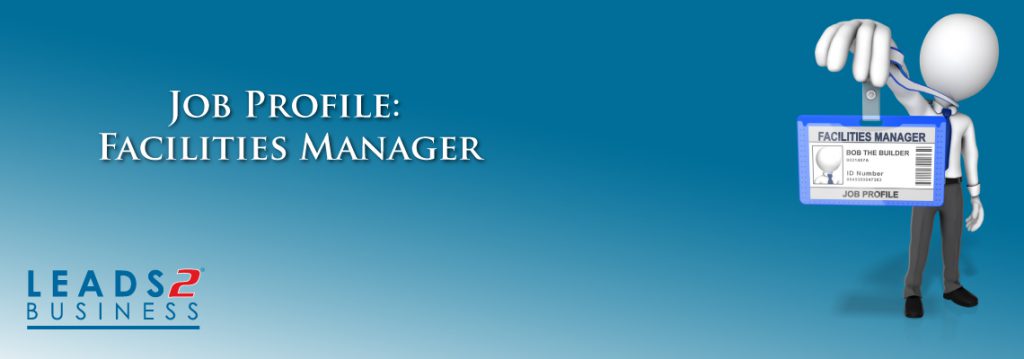
So you have decided to become a Facilities Manager….now how much should you be earning, and what skills would you need to become one?
I have done some extensive research and have sourced the following key information to help you on your way to becoming an amazing Facilities Manager. Just remember not to do it longer than 20 years!
How much can you expect to earn?
Facilities Managers should earn an average salary of R357 994.00 per annum. The salary for being a Facilities Manager rises steadily for more experienced workers but goes down significantly for the few employees with more than 20 years’ experience.
Most people with this type of employment go on to other positions after 20 years in this career.
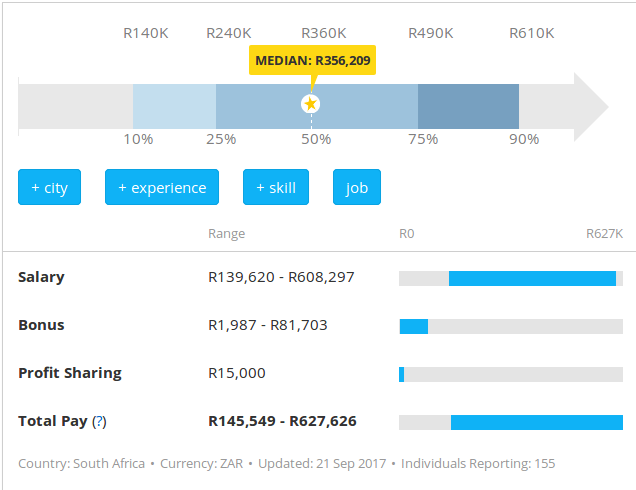
Pay by Experience Level for Facilities Manager
Mid-Career (5-10 yrs)
R395,000
Pay by Experience for a Facilities Manager has a positive trend. An entry-level Facilities Manager with less than 5 years of experience can expect to earn an average total compensation of R287 000 based on 56 salaries provided by anonymous users. Average total compensation includes tips, bonus, and overtime pay. A Facilities Manager with mid-career experience which includes employees with 5 to 10 years of experience can expect to earn an average total compensation of R395 000 based on 70 salaries. An experienced Facilities Manager which includes employees with 10 to 20 years of experience can expect to earn an average total compensation of R479 000 based on 39 salaries. A Facilities Manager with late-career experience which includes employees with greater than 20 years of experience can expect to earn an average total compensation of R379 000 based on 12 salaries.
Pay Difference by Location
Pay Difference by Location
Pretoria
▲16%
Johannesburg
▲11%
Cape Town
▼-25%
National Average: R376 955
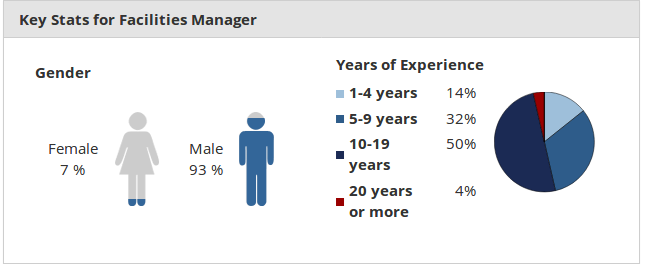
Oooookay…so now you have the pay scale figures running around in your mind…what kind of skills do you need to become a Facilities Manager, and of course, do you have some of them already?
Key skills for facilities managers
If you have read the above and said yes, yes, tick tick, of course, I can influence people, etc, and you are thrilled with the potential salary you could get, sign up for a course in Facilities Management and qualify.
And don’t forget, should you be searching for any Facility Management Tender Leads, to contact me at MelanieM@L2B.co.za to subscribe and receive Daily Tender Leads directly to your inbox.
Sources:
https://www.payscale.com/research/ZA/Job=Facilities_Manager/Salary
https://www.payscale.com/research/ZA/Job=Facilities_Manager/Salary/ae63c3c3/Johannesburg
https://targetjobs.co.uk/careers-advice/job-descriptions/279519-facilities-manager-job-description
One girl who would rather wear boots than high heels...

When I hear the term facilities management I think of companies like Servest, Bidvest, Broll etc. It is a question often asked by building owners and occupiers as well as professionals in the property industry.
So… What exactly does facilities management entail? Here are a few definitions from various websites:
What is Facility Management?
Simply put, it is the management of buildings and services.
The International Facility Management Association (IFMA) defines FM as a profession that encompasses multiple disciplines to ensure functionality of the built environment by integrating people, place, process and technology.
FM can be split into two areas of hard and soft services. What is the difference between the two?
Hard Services – are ones which relate to the physical fabric of the building and cannot be removed. They ensure the safety and welfare of employees and generally are required by law. These include:
Soft Services – are ones which make the workplace more pleasant or secure to work in. They are not compulsory and can be added and removed as necessary.
Carrying out a Facilities Needs Assessment will help you to identify which services are actually needed by the company and which are unnecessary. These include:
How important is Facility Management?
Facilities management has gained importance over the last few years as businesses have identified that well-managed buildings and utilities help companies function effectively and efficiently. Facilities management team consists of professionals involved in the day-to-day analysis, maintenance and repair of the company utilities. The facilities management team should also actively be involved in strategic planning activities that help in cutting costs and increasing employee productivity.
According to a Deloitte report on the “Strategic Role of Facilities Management”; almost 75% of facilities professionals agreed that facilities management has a significant strategic impact. However; only around 20% of a facility manager’s time is spent in strategy and planning activities while a whopping 53% is spent on the regular day-to-day operations.
About SAFMA (South African Facilities Management Association) – www.safma.co.za
“The South African Facilities Management Association (SAFMA) is a self-sustaining body recognised locally and internationally for its meaningful role in the South African Facilities Management Community. SAFMA defines Facilities Management as an enabler of sustainable enterprise performance through the whole life management of productive workplaces and effective business support services.
SAFMA offers its members many benefits, including sharing expertise with other facilities management professionals in South Africa and internationally, access to an advisory service, networking events, establishing contacts overseas, keeping up-to-date on local and international facilities management trends.
The primary objectives of SAFMA are to facilitate, promote and support skills development for Facilities Managers through working with the Quality Assurance Councils and with Endorsed Training Providers – thereby enhancing skills supply. SAFMA aims to promote and encourage networking between Facilities Management Professionals to ensure an exchange of information and best practice. Click here to read more”.
The end goal for any business is to cut costs, improve staff productivity and increase ROI. An effective facilities management process is vital to an organisation as it covers almost all the business aspects and their role in strategic planning helps a company achieve their business objectives.
Sources:
How Important is Facilities Management? | Empower CS
https://www.highspeedtraining.co.uk/hub/soft-hard-facilities-management-difference/
I started working for Leads 2 Business in May 2012 as an Account Co ordinator and more recently the Deputy Head of Department for the Telesales team. I schedule appointments for the Account Executives with potential clients.

When we think of blasting & explosives the first thing that comes to mind for most is a building crumbling or the eruption of something catastrophic. Detonators & dynamite & a few seconds later there is a building implosion, leaving many in awe as a once beautiful building, now lays in a midst of dust & rubble. Did one ever wonder how this process happens, what actually goes into blasting & explosives?
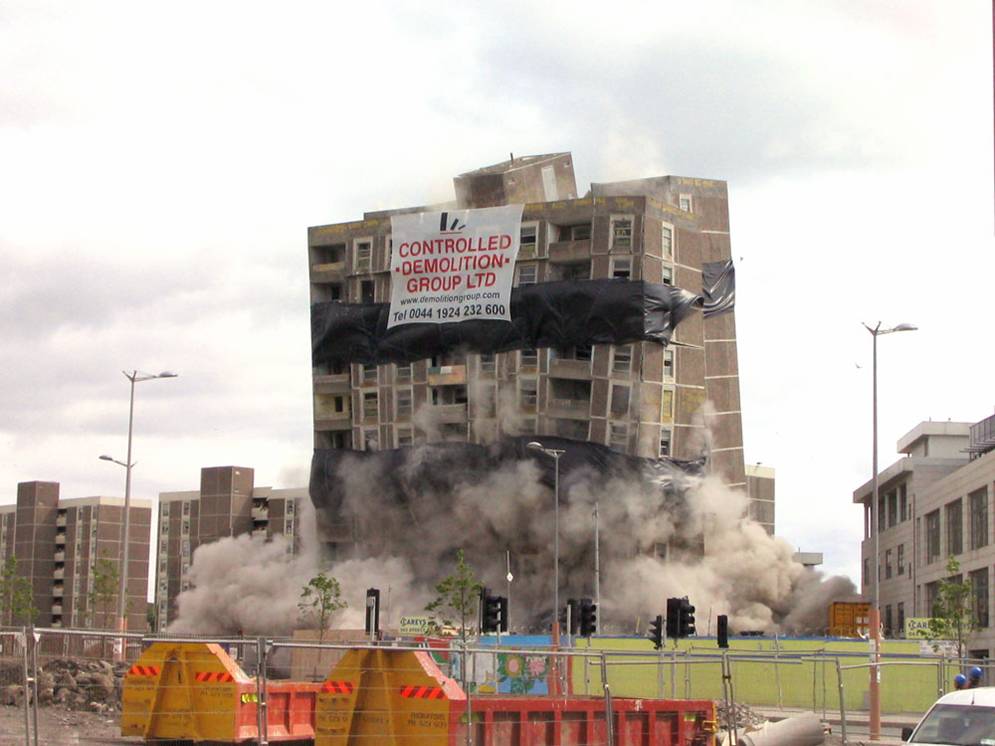
Let’s take an insightful journey into the wonderful world of blasting’s & explosives.
What are explosives: Explosives are materials that produce violent chemical or nuclear reactions.
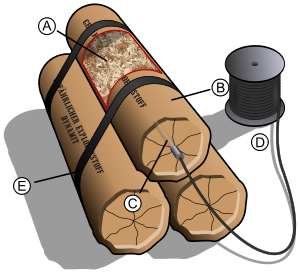
Boom! Did you hear that explosion? It sounded like a thousand sticks of dynamite blowing up at once. Can you imagine what that might look and sound like? Dynamite was used dating back to our forefathers & is still used today. These are the 4 main industries that use dynamite i.e. construction, mining, quarrying & demolition. An interesting fact, dynamite was used as a weapon in the military but in time other explosives took over & dynamite became a thing of the past
Blasting in the mining industry: In the mining cycle blasting is imperative. In almost every aspect of mining, rocks are broken by drilling & blasting. This technology is the process of breaking down material by using a certain amount of explosives on a mine site. Too many explosives on a mine site can cause damage to rocks & the caving of rocks. A more traditional method of blasting is using black powder & dynamite. The more common explosive used today is ANFO (Ammonium Nitrate Fuel Oil).
What is civil blasting: The most important function of civil blasting is for breaking, removing or demolishing rock of different sizes. So think about how roads are formed. The preparation that goes into forming this long stretched highway. Blasting is one of the most important functions, to ensure the road maintains a certain level, as well any hard rock found under is removed before the roadworks begin.

Building implosions: A building implosion has to be strategically planned, well timed & executed. The detonation has to be on point, so that the structure collapses on itself, in the blink of an eye. The reason for this well-executed implosion is to minimize damage to its surroundings. Building implosion is not just related to buildings, although the terminology, this includes bridges, towers, tunnels etc. History is quite amazing the first ever attempt at a building implosion was in 1773 in Ireland of the Holy Trinity Cathedral.
Technology does control the present & definitely the future with improvements being made every day. So picture great beaming machines, built of bolts, gleaming metal & revolutionized with technology, in the click of a button, from the comfort of your office a building or mine site can be blown up.

Blasting footage: https://youtu.be/6Fw3omoCxRs
Sources:
https://en.wikipedia.org/wiki/Dynamite
http://technology.infomine.com/reviews/Blasting/welcome.asp?view=full
http://www.blastquest.co.za/blasting-a-drilling-info/30-blasting-the-types-of-blasting-services.html
https://en.wikipedia.org/wiki/Building_implosion
Image Sources:
I started at Leads 2 Business in 2014. I am a friendly, bubbly, enthusiastic person. I am passionate about sales & customer service. My motto "when you know better you do better".
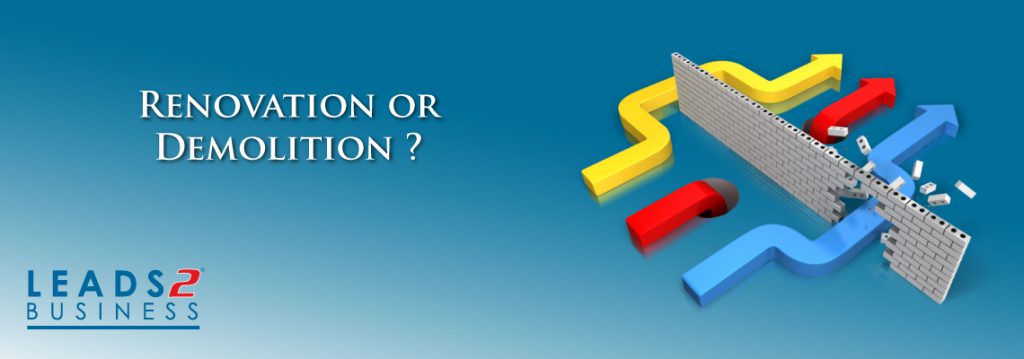
Here is a question that is posed to me at least once a month – “Do I renovate my existing home or do I demolish it and start from scratch with a new build?”
There are plenty of reasons to consider demolition. You may be looking to free up land, or perhaps you’re working on a major building refurbishment and need to change the layout.
There is a fine line when you are renovating where you need to know if you’re going to start wasting money fixing a house that is not worth fixing.
If your home is structurally sound, the outer shell of the home has been properly maintained (the roof, the siding/brick and the foundation) and it was properly done at the time of the construction then there is probably no need to demolish it.
Two ways you could demolish a building structure:
1. Explosive Demolition
2. Non-Explosive Demolition
Things You Should Know About Demolition
1. Demolition – So how do you demolish a building or home? Before you take down all or part of a building, you will have to apply to the Building Department for a demolition permit. The process is much the same as for a building permit, but some special situations may affect your application. In a demolition control area, for example, you will not be able to demolish a residential property until you have received a demolition permit issued by the municipal council.
I say the best way to demolish a building is also known as strip-out, this process is very popular right now. As recycling and salvaging of material are very attractive to builders during these days, allowing them to re-use material or recycle it. Selective interior/exterior demolition or recycling of wood, brick, metals and concrete are all recycled for future use in new structures blending the old with the new. This demolition process is not limited to removal of interior equipment, walls, floor, ceilings and exterior components. The main purpose of this method is to recover the maximum amount of primarily reusable and secondary recyclable material in a safe and cost-effective procedure. Although it is a labour intensive process and can be very difficult to achieve in a timely and economical manner for light framed buildings. Demolition may very well be the most exciting and speedy phase of construction. For a complete demolition, a home can come down and be entirely removed from the site in a day or two.
Question: I want to demolish my house and there are items like flooring and windows that may be reusable. Who do I call?
Answer: Find a demolition company that actively recycles the whole building. Most demolition companies crush materials with large machinery and cart it away. If you have good quality reusable materials like timber flooring, heritage bricks or period architectural features it’s worth looking for alternatives. Have a look at http://www.enviroserv.co.za/industries/construction
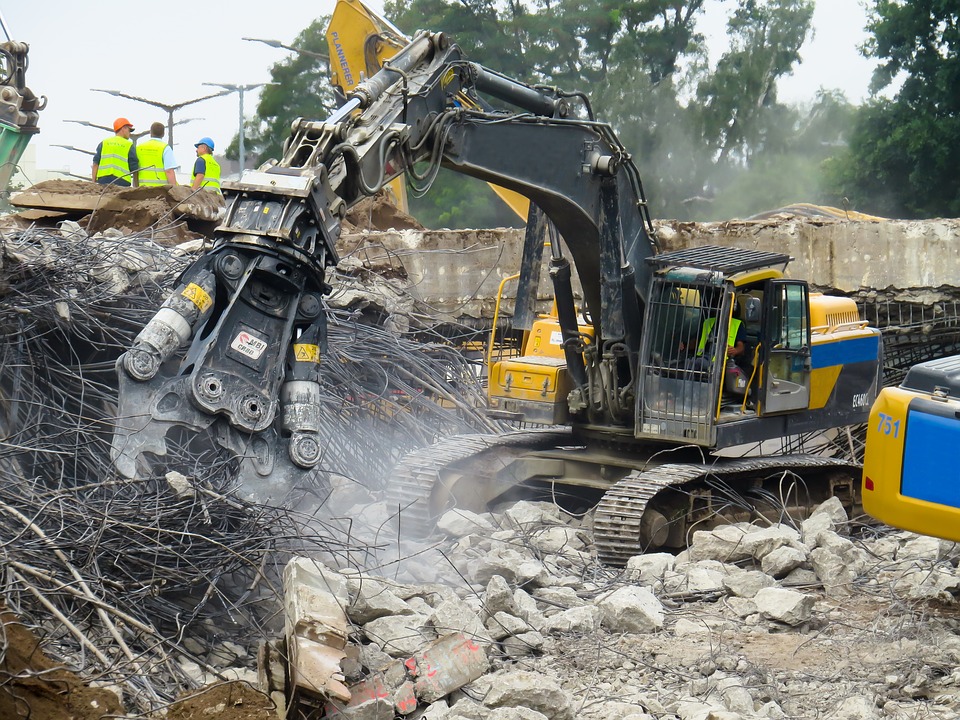
2. Renovation – What is Renovation (also called remodelling)? It is the process of improving a broken, damaged or outdated structure. Renovations are typically either commercial or residential. Both remodelling and renovating mean to make improvements on an existing building or home. However, they refer to two slightly different types of construction. Renovation means “restore to a good state of repair”… Remodel means “to change the structure or form of something”.
If most of the changes that you want to do are inside the house and are more cosmetic, then you should rather think about renovating. Tearing down interior walls and moving plumbing and heating lines is not that big of a job and can be done on a moderate budget. With new dust stopping protection and floor protection, a lot of the work can be down without causing damage to the rest of the house that isn’t being altered. Plus this allows you to leave your furniture and other possessions in the house while it’s being worked on.
If you want to add square footage, adding an addition or several additions can easily be done, as long as you have adequate space on your property. Additions are an easy way to make your house more enjoyable and add value. It allows you to do something completely different than the rest of the house which would allow you to leave more of the original features in the existing house. This would allow you to bring a modern touch at a lesser cost than trying to reshape the whole existing interior.
3. Renovation or Demolition?
One of the big advantages of renovating rather than demolishing and building from scratch is that in some cases you can do it in stages – and still have a roof over your head for most of that time. Don’t forget to consider where you’ll live when you’re building or renovating, and how much that may indirectly add to the cost over the duration of your build.
If you’re demolishing or renovating, you may be able to recover at least some of your costs through salvage and recycling too
4. Steps to Planning a Renovation
A. Choose a design professional. To create a plan and detailed scope of work, most homeowners hire either an architect or interior designer, sometimes both. Many designers work on projects that don’t involve major structural work or additions and also offer assistance with material and colour selections. Architects may take on a wide range of work, or work only on floor plans and permits and leave the details of the electrical plan, baths and kitchen to another designer.
B. Interview contractors. Contractors are frequently brought into the process once a final design has been selected. Usually, there is at least a general idea of how the home will look from the outside, a dimensioned floor plan and some preliminary material selections. With this much information, it’s possible to provide preliminary estimates of cost.
C. Get your permits. Depending on the scope of your project and where it’s located, permitting can take a day, months or even years.
Sources:
https://www.homebuilding.co.uk/renovation-your-step-by-step-planner/
https://mg.co.za/article/2014-06-12-to-refurbish-or-not-to-refurbish
https://www.justlanded.com/english/South-Africa/South-Africa-Guide/Property/Renovation-Restoration
http://www.build.com.au/should-i-renovate-or-demolish
https://theconstructor.org/structures/demolition-methods-process-buildings-structures/13941/
I started working for Leads to Business June 2017 as Support Assistance in L2Q.